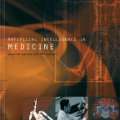The paper reviews methods that seek to draw causal inference from observational data and demonstrates how they can be applied to empirical problems in engineering research. It presents a framework for causal identification based on the concept of potential outcomes and reviews core contemporary methods that can be used to estimate causal quantities. The paper has two aims: first, to provide a consolidated overview of the statistical literature on causal inference for the data centric engineering community; and second, to illustrate how causal concepts and methods can be applied. The latter aim is achieved through Monte Carlo simulations designed to replicate typical empirical problems encountered in engineering research. R code for the simulations is made available for readers to run and adapt and citations are given to real world studies. Causal inference aims to quantify effects that occur due to explicit intervention (or 'treatment') in non-experimental settings, typically for non-randomly assigned treatments. The paper argues that analyses of engineering interventions are often characterized by such conditions, and consequently, that causal inference has immediate and valuable applicability.
翻译:文件审查了从观察数据中得出因果关系推断的方法,并说明了如何将这些推断应用于工程研究的经验性问题;根据潜在结果的概念,提出了因果鉴定框架,并审查了可用于估计因果数量的核心当代方法;文件有两个目的:第一,综合概述关于数据中心工程界因果推断的统计文献;第二,说明如何应用因果概念和方法;后一项目标是通过蒙特卡洛模拟实现的,旨在复制工程研究中遇到的典型经验问题;为读者提供模拟代码,供他们运行、调整和引用真实世界研究;从逻辑推论中量化由于明确干预(或“治疗”)在非极端环境中发生的效果,通常用于非任意指定的治疗;论文指出,工程干预分析往往以这种条件为特征,因此,因果关系推断具有直接和宝贵的适用性。




